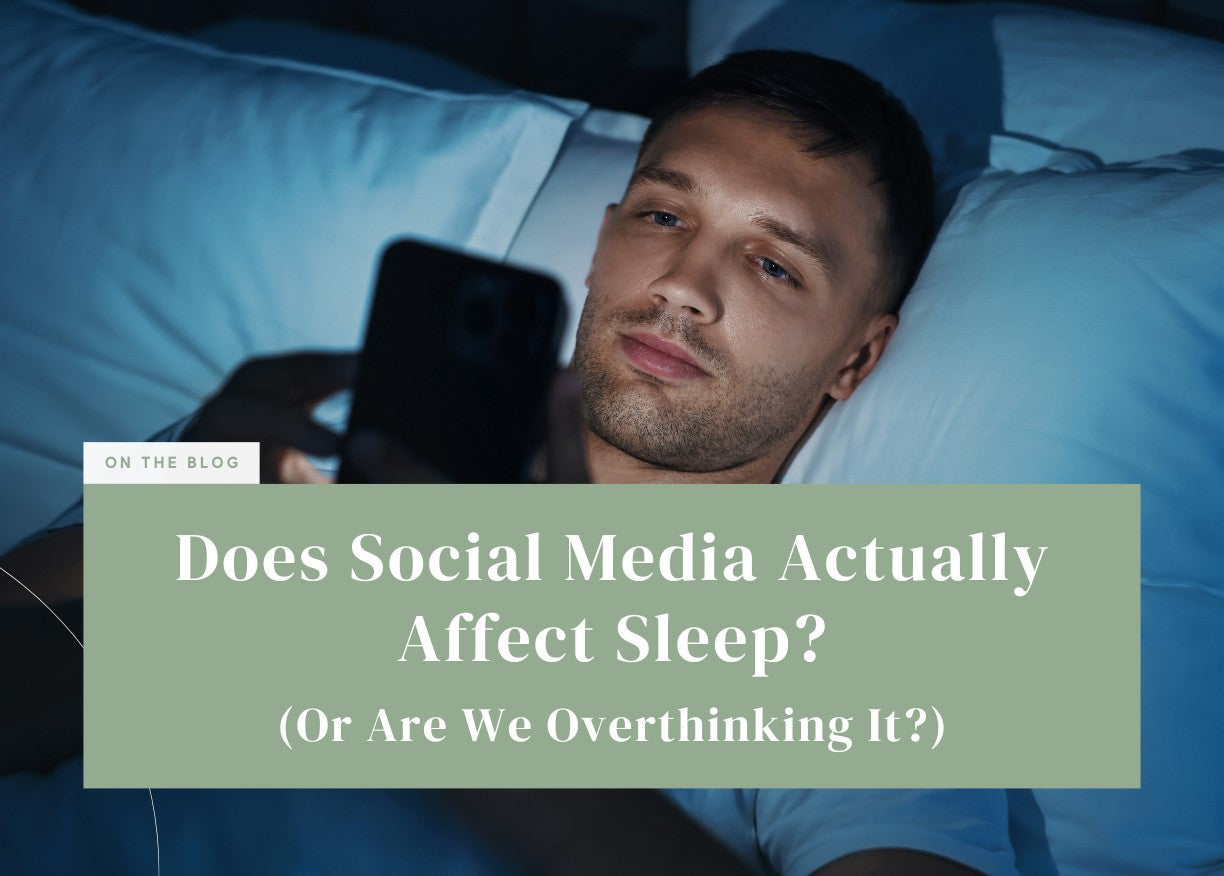Does Social Media Actually Affect Sleep? (Or Are We Overthinking It?)
You’re in bed. Lights are off.
You told yourself “just five minutes” to check Instagram, maybe scroll TikTok, respond to a few DMs.
Suddenly, it’s 45 minutes later. Your eyes are dry. Your brain is buzzing. And sleep? Nowhere in sight.
It’s a routine many of us repeat—night after night.
So the question is:
Is social media really messing with our sleep—or is it just a bad habit we like to blame?
Turns out, it’s both.
What Social Media Does to Your Brain Before Bed

Social media isn’t just passive entertainment. It’s high-stimulation content—packed with emotion, movement, sound, color, and unpredictability.
Your brain reacts to that stimulation by releasing dopamine, the feel-good chemical that keeps you coming back for more.
The problem? Your brain also needs to wind down to sleep. And the constant mental “ping” of swiping, reacting, comparing, and watching… makes it almost impossible to do that.
Here’s What the Research Says:

- Blue light exposure from screens suppresses melatonin—the hormone your body releases to get sleepy (Harvard Health)
-
Social media use before bed is linked to longer sleep latency (you take longer to fall asleep) and more sleep disturbances
-
Scrolling in bed increases stress, anxiety, and rumination—especially when consuming negative or emotionally charged content
-
The more time spent on social media before bed, the less overall sleep you get and the worse your sleep quality becomes (NIH Study)
The Cycle Looks Like This:
-
You scroll to relax
-
Your brain gets overstimulated
-
You fall asleep later
-
You wake up tired
-
You reach for your phone in the morning
-
Repeat
Breaking this cycle takes more than willpower—it takes a plan.
5 Ways to Make Social Media Less Destructive for Your Sleep
1. Set a “Tech Curfew”

✅ Put your phone down at least 30–60 minutes before bed
Use an old-school alarm clock to keep your phone out of reach
2. Use Screen Filters or Night Mode

Most devices have a “Night Shift” or “Blue Light Filter” mode that reduces harsh light and lowers stimulation. It’s not perfect, but it helps.
3. Move Your Wind-Down Offline

Swap social media for something less stimulating:
-
Read a book
-
Journal
-
Stretch
-
Meditate
-
Do a simple skincare routine or listen to calming music
4. Keep Your Bedroom for Rest—Not Scrolls
Train your brain to associate your bed with sleep.
That means no phones in bed, no TikTok holes under the blanket, no endless swiping in the dark.
🌿 Instead, make your bedroom a true sleep sanctuary—with the Honey Hybrid Organic Mattress, plant-based pillow, and bamboo sheets from Sweet Zzz that help your body unwind even if your mind is still catching up.
5. Watch the Content You Consume

Avoid content that’s emotionally activating before bed—no heated debates, scary news, or doom scrolling. Your nervous system needs calm, not chaos.
Final Thoughts: It’s Not the Phone—It’s the Timing
Social media isn’t evil. It connects us, entertains us, and helps us wind down—until it starts messing with the very thing that makes us feel good in the first place: deep, consistent sleep.
Your scroll habit might feel harmless.
But your brain, your hormones, and your sleep cycle tell a different story.





